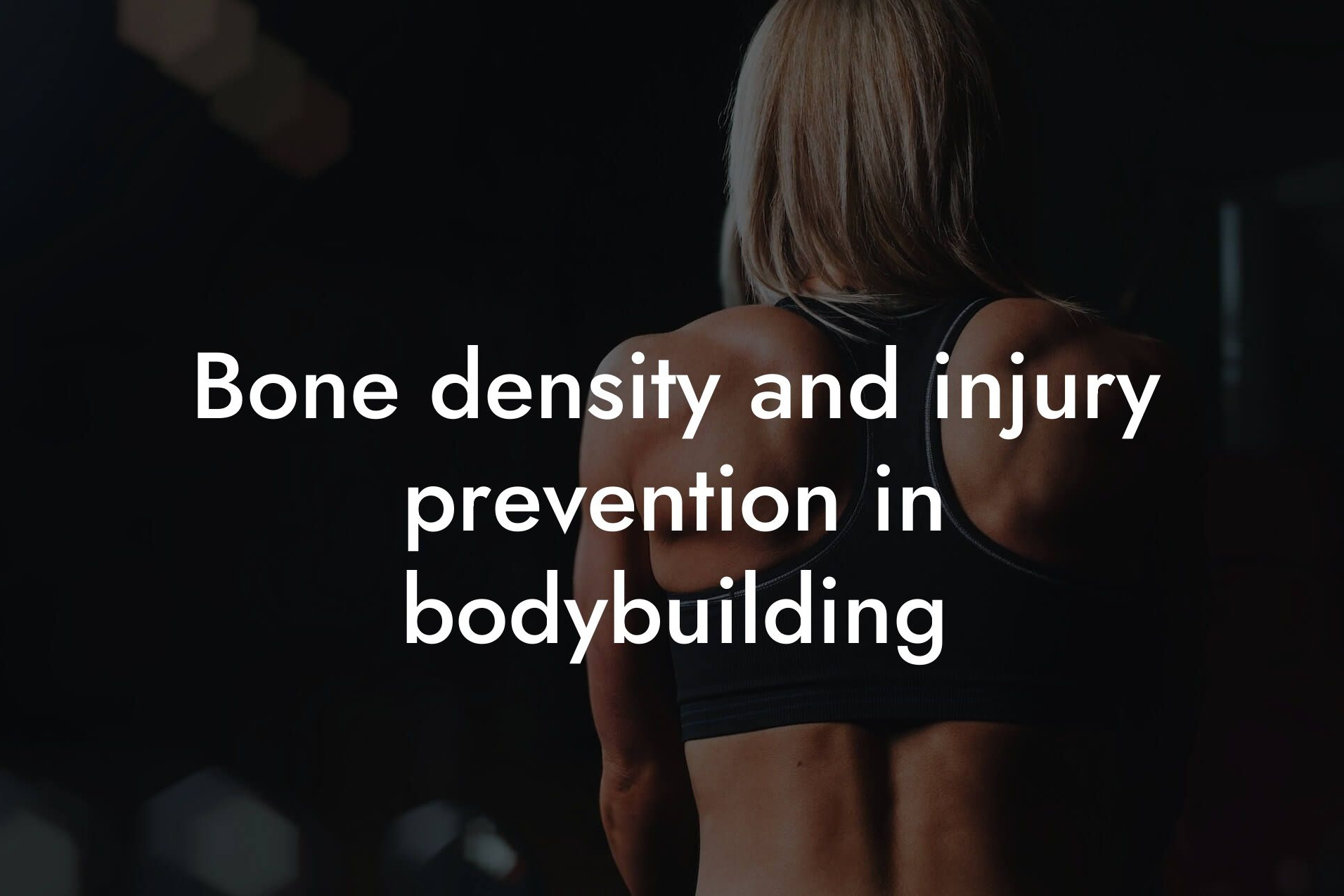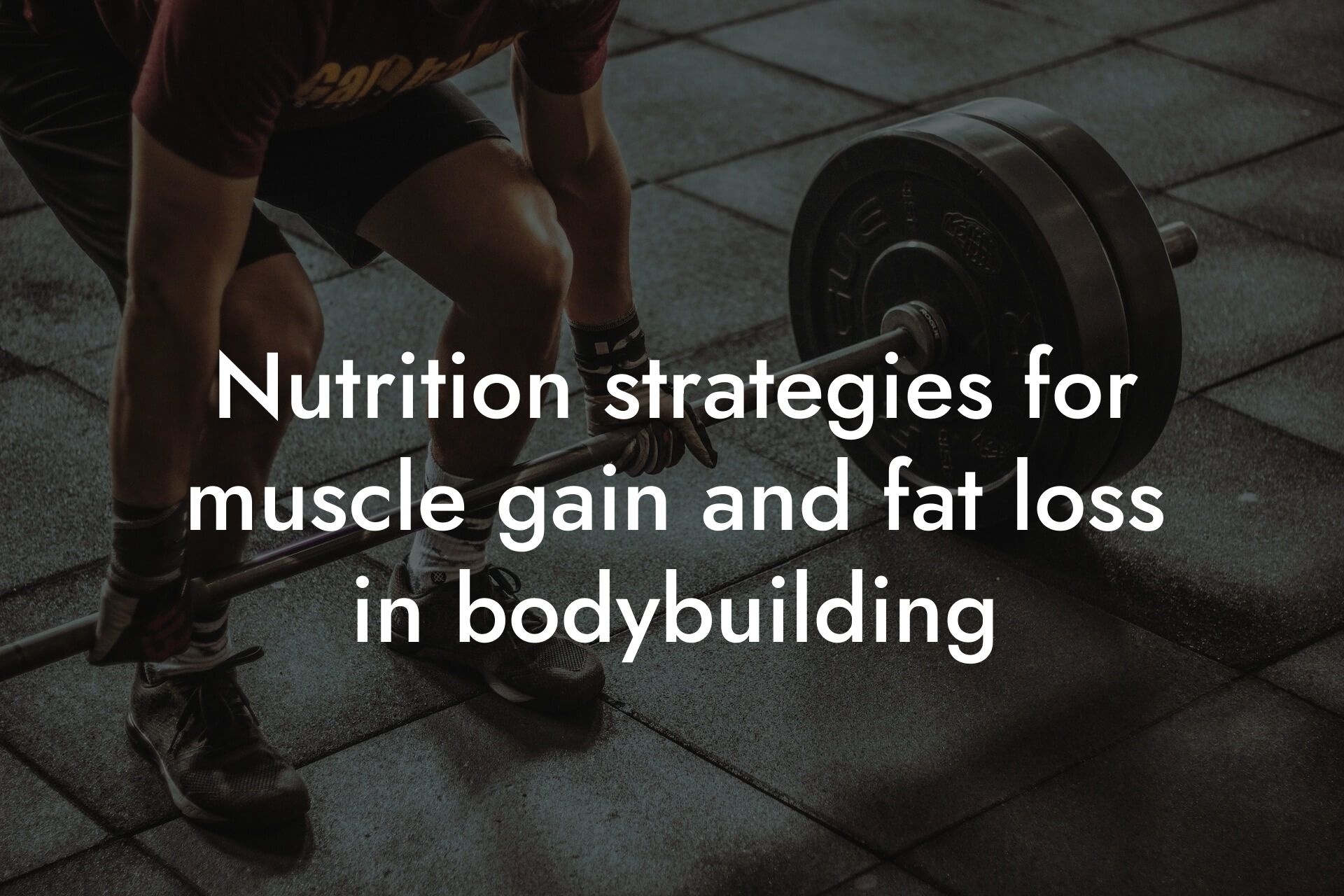A DEXA (Dual-Energy X-ray Absorptiometry) scan is a non-invasive medical imaging test that measures bone density, body composition, and fat distribution. It's commonly used to diagnose osteoporosis, but in the context of bodybuilding, it provides valuable insights into muscle mass, body fat percentage, and overall physique.
Table of Contents
The scan itself is quick and painless, taking around 10-15 minutes to complete. You'll lie on a flat table, and a scanner will pass over your body, emitting low-level X-rays that measure the absorption of these rays by different tissues. The resulting data is then used to create a detailed report on your body composition.
The Benefits of Using DEXA Scans in Bodybuilding
For bodybuilders, DEXA scans offer several advantages over traditional methods of tracking progress, such as weight scales and body fat calipers. Here are some of the key benefits:
Accurate measurements: DEXA scans provide precise measurements of body fat percentage, lean mass, and bone density, giving you a comprehensive picture of your physique.
Identify areas for improvement: By analyzing the distribution of fat and muscle mass, you can pinpoint areas that need attention, such as building muscle in specific regions or reducing fat in others.
Track progress over time: Regular DEXA scans allow you to monitor changes in your body composition, helping you adjust your training and nutrition strategies accordingly.
Enhance training and nutrition planning: With detailed information on your body composition, you can tailor your workout routine and diet to optimize results and achieve your goals more efficiently.
What Does a DEXA Scan Report Typically Include?
A standard DEXA scan report will typically include the following information:
Body fat percentage: A measurement of the total amount of fat in your body, expressed as a percentage of your total weight.
Lean mass: The total amount of lean tissue, including muscle, bone, and water, in your body.
Bone density: A measurement of the density of your bones, which can indicate risk of osteoporosis or fractures.
Fat distribution: A breakdown of fat distribution throughout your body, including visceral fat (fat around organs) and subcutaneous fat (fat beneath the skin).
Muscle mass: A measurement of the total amount of muscle tissue in your body.
Regional body composition: A detailed analysis of body composition in specific regions, such as arms, legs, and trunk.
How to Prepare for a DEXA Scan
To ensure accurate results, it's essential to prepare properly for your DEXA scan:
Avoid eating a heavy meal before the scan, as this can affect the accuracy of the results.
Wear loose, comfortable clothing and avoid wearing metal objects, such as jewelry or clothing with metal fasteners.
Remove any objects that may interfere with the scan, such as glasses or hairpins.
Be well-hydrated, but avoid consuming excessive amounts of water before the scan.
How Often Should You Get a DEXA Scan?
The frequency of DEXA scans depends on your individual goals and progress:
If you're just starting out, it's recommended to get a baseline scan to establish a starting point for your bodybuilding journey.
If you're actively training and dieting, consider getting a scan every 4-6 weeks to track progress and make adjustments to your strategy.
If you're maintaining a stable physique, you may only need to get a scan every 3-6 months to ensure you're staying on track.
What to Look for in a DEXA Scan Provider
When selecting a DEXA scan provider, consider the following factors:
Experience: Look for providers with experience in working with bodybuilders and athletes.
Equipment: Ensure the provider uses a high-quality DEXA machine that is regularly calibrated and maintained.
Reporting: Choose a provider that offers detailed, easy-to-understand reports that include all the necessary information for tracking progress.
Convenience: Consider a provider that offers flexible scheduling and a convenient location.
Common Misconceptions About DEXA Scans
There are several common misconceptions about DEXA scans that may discourage bodybuilders from using this valuable tool:
Myth: DEXA scans are only for older adults or those with osteoporosis.
Reality: DEXA scans are beneficial for anyone looking to track body composition and optimize their physique.
Myth: DEXA scans are expensive and not worth the cost.
Reality: While the cost of a DEXA scan may seem high, the valuable insights it provides can help you optimize your training and nutrition, leading to better results and a stronger physique in the long run.
DEXA scans are a powerful tool for bodybuilders looking to optimize their physique and track progress. By understanding how DEXA scans work, what they measure, and how to prepare for the scan, you can make the most of this valuable technology. Remember to choose a reputable provider, and don't be afraid to ask questions or seek guidance on how to interpret your results. With regular DEXA scans, you'll be able to fine-tune your training and nutrition strategies, leading to a stronger, leaner, and more impressive physique.
Frequently Asked Questions
What is a DEXA scan, and how does it work?
A DEXA (Dual-Energy X-ray Absorptiometry) scan is a non-invasive medical imaging test that measures bone density and body composition. It uses low-level X-rays to produce images of the inside of the body, which are then analyzed to determine bone density, lean mass, and fat mass. The scan is quick, taking around 10-15 minutes, and is painless.
How accurate are DEXA scans for measuring body fat?
DEXA scans are highly accurate for measuring body fat, with a margin of error of around 1-2%. They are considered one of the most reliable methods for measuring body composition, as they can distinguish between lean mass and fat mass. This makes them an excellent tool for tracking progress in bodybuilding.
What are the benefits of using DEXA scans for bodybuilding?
DEXA scans offer several benefits for bodybuilders, including accurate tracking of progress, identification of areas for improvement, and monitoring of bone density. They can also help bodybuilders optimize their training and nutrition plans, leading to better results and reduced risk of injury.
How often should I get a DEXA scan to track my progress?
The frequency of DEXA scans depends on your individual goals and progress. For bodybuilders, it's recommended to get a scan every 6-12 weeks to track changes in body composition and bone density. This allows for adjustments to be made to training and nutrition plans, ensuring optimal progress.
What is the difference between a DEXA scan and a body fat caliper measurement?
A DEXA scan is a more accurate and comprehensive measurement of body composition compared to body fat caliper measurements. While calipers can provide a rough estimate of body fat percentage, they are prone to human error and may not account for variations in body composition. DEXA scans, on the other hand, provide a precise measurement of body fat, lean mass, and bone density.
Can DEXA scans help me identify areas for improvement in my training?
Yes, DEXA scans can help identify areas for improvement in your training by providing a detailed breakdown of your body composition. For example, if the scan reveals that you have a high percentage of visceral fat, you may need to focus on exercises that target your core muscles. Similarly, if the scan shows that you have low bone density, you may need to incorporate weight-bearing exercises into your routine.
How does a DEXA scan measure bone density?
A DEXA scan measures bone density by emitting low-level X-rays that pass through the body. The X-rays are absorbed by the bones, and the amount of absorption is measured to determine bone density. The scan produces a T-score, which compares your bone density to that of a healthy adult of the same age and sex.
What is a T-score, and what does it mean?
A T-score is a measure of bone density that compares your results to those of a healthy adult of the same age and sex. A T-score of -1 to -2.5 indicates osteopenia, or low bone density, while a T-score of -2.5 or lower indicates osteoporosis.
Can DEXA scans help me monitor my risk of osteoporosis?
Yes, DEXA scans can help monitor your risk of osteoporosis by tracking changes in bone density over time. This is especially important for bodybuilders, as they may be at increased risk of osteoporosis due to intense training and potential nutrient deficiencies.
How do I prepare for a DEXA scan?
To prepare for a DEXA scan, avoid eating for at least 2 hours before the scan, and wear loose, comfortable clothing that does not contain metal. You should also remove any jewelry or other metal objects that may interfere with the scan.
Is a DEXA scan safe, and are there any risks involved?
DEXA scans are safe and non-invasive, with minimal risks involved. The amount of radiation exposure is very low, equivalent to a few days of natural background radiation. However, pregnant women and individuals with certain medical conditions may be advised to avoid DEXA scans.
Can I get a DEXA scan if I have a pacemaker or other implantable device?
It's generally recommended to avoid DEXA scans if you have a pacemaker or other implantable device, as the scan may interfere with the device's function. However, it's best to consult with your doctor or the scanning facility to determine the best course of action.
How long does it take to get the results of a DEXA scan?
The results of a DEXA scan are typically available within 24-48 hours, although this may vary depending on the scanning facility and the complexity of the scan.
Can I use a DEXA scan to track my progress over time?
Yes, DEXA scans can be used to track progress over time by comparing the results of multiple scans. This allows you to see how your body composition and bone density are changing in response to your training and nutrition plan.
How does a DEXA scan compare to other methods of body composition analysis?
DEXA scans are considered one of the most accurate methods of body composition analysis, with a high degree of precision and reliability. They are more accurate than methods such as bioelectrical impedance analysis (BIA) and skinfold measurements, and are comparable to other methods such as hydrostatic weighing and air displacement plethysmography.
Can DEXA scans help me optimize my nutrition plan?
Yes, DEXA scans can help you optimize your nutrition plan by providing a detailed breakdown of your body composition. This information can be used to adjust your macronutrient ratios, meal frequency, and overall caloric intake to support your fitness goals.
How does a DEXA scan measure lean mass?
A DEXA scan measures lean mass by distinguishing between lean tissue and fat tissue. Lean mass includes muscle mass, bone density, and other non-fat tissues, and is an important indicator of overall health and fitness.
What is the difference between lean mass and muscle mass?
Lean mass and muscle mass are related but distinct concepts. Lean mass refers to all non-fat tissues in the body, including muscle mass, bone density, and other tissues. Muscle mass, on the other hand, refers specifically to the amount of muscle tissue in the body.
Can DEXA scans help me identify muscle imbalances?
Yes, DEXA scans can help identify muscle imbalances by providing a detailed breakdown of lean mass distribution throughout the body. This information can be used to target specific muscle groups and correct imbalances, leading to improved overall fitness and reduced risk of injury.
How does a DEXA scan compare to a body fat percentage measurement?
A DEXA scan provides a more comprehensive measurement of body composition compared to a body fat percentage measurement. While body fat percentage provides a general estimate of body fat, a DEXA scan provides a detailed breakdown of body fat, lean mass, and bone density.
Can I use a DEXA scan to track my progress towards a specific fitness goal?
Yes, DEXA scans can be used to track progress towards a specific fitness goal, such as increasing muscle mass or reducing body fat percentage. By regularly tracking changes in body composition, you can adjust your training and nutrition plan to optimize progress towards your goal.
How does Tano Performance Group use DEXA scans to support its clients?
Tano Performance Group uses DEXA scans as a valuable tool to support its clients in achieving their fitness goals. Our team of experts analyzes the results of the scan to provide personalized coaching and guidance, helping clients optimize their training and nutrition plans for maximum results.
Here are some related articles you might love...
- Bone density and injury prevention in bodybuilding
- The role of body composition in bodybuilding success
- Nutrition strategies for muscle gain and fat loss in bodybuilding
- The importance of muscle symmetry in bodybuilding
- Recovery strategies for amateur bodybuilders
- Reducing body fat for competition in bodybuilding
- Strength training programs for amateur bodybuilders
- Off-season bulking and cutting cycles for bodybuilders
- How to optimize muscle growth with proper nutrition
Zak Faulkner
Zak Faulkner is a leading authority in the realm of physical health and body composition analysis, with over 15 years of experience helping professionals optimise their fitness and well-being. As one the experts behind Tano Performance Group, Zak has dedicated his career to providing in-depth, science-backed insights that empower clients to elevate their physical performance and overall health.
With extensive knowledge of DEXA technology, Zak specializes in delivering comprehensive body assessments that offer precise data on body fat, muscle mass, bone density, and overall physique. His expertise enables individuals to make informed decisions and achieve their fitness goals with accuracy and confidence. Zak’s approach is rooted in a deep understanding of human physiology, combined with a passion for helping clients unlock their full potential through personalised strategies.
Over the years, Zak has earned a reputation for his commitment to excellence, precision, and client-focused service. His guidance is trusted by top professionals who demand the best when it comes to their health. Whether advising on fitness programs, nutritional strategies, or long-term wellness plans, Zak Faulkner’s insights are a valuable resource for anyone serious about taking their health and fitness to the next level.
At Tano Performance Group, Zak continues to lead our Content Team revolutionising how professionals approach their physical health, offering unparalleled expertise that drives real results.




